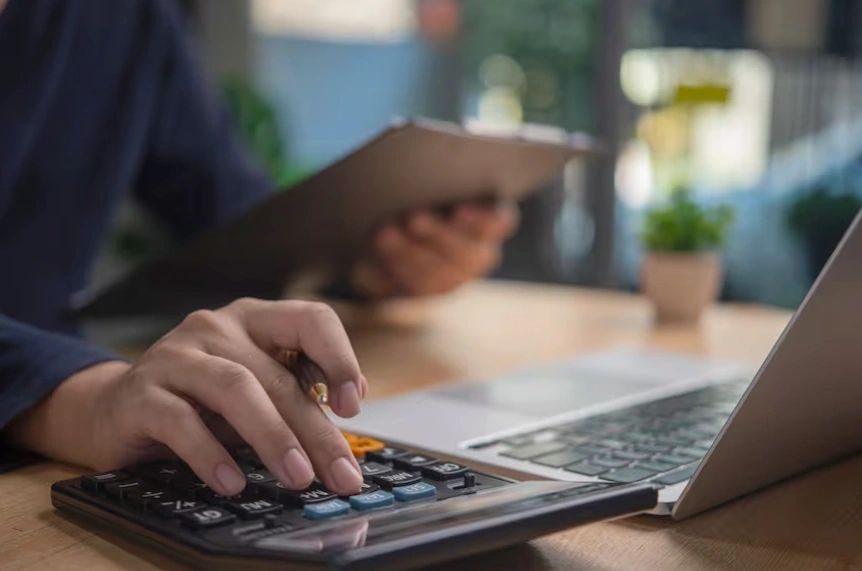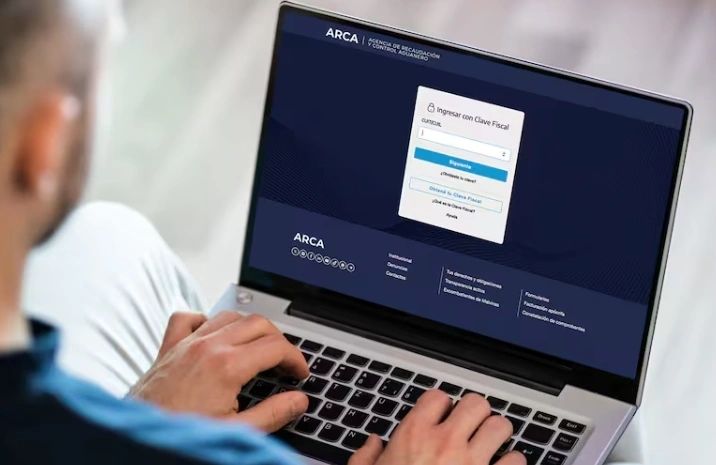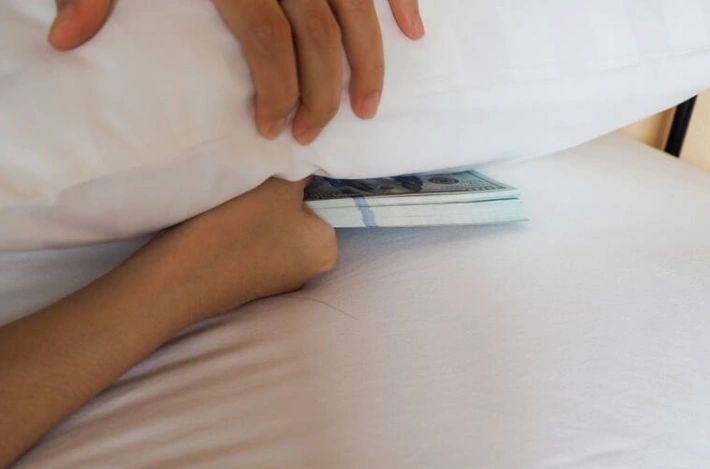BuySellBA
Administrator
New simplified income tax regime: Can dollars be used "under the mattress" without investigation of their origin? - La Nacion Propiedades

Source:

 www.lanacion.com.ar
www.lanacion.com.ar
June 02, 2025
The new resolution simplifies the filing of income tax, but does not change current laws.
By Candela Contreras

The government continues with its plan to get dollars out of the mattress.khunkornStudio - Shutterstock
More than a week after the government decreed the new simplified income tax regime for individuals, announced by Economy Minister Luis Caputo , the Argentine Federal Administration of Resources and Contributions ( ARCA - formerly AFIP) established the adhesion procedure through General Resolution 5704 published in the Official Gazette last Friday.
According to the agency, those who opt for and file a simplified tax return will be exempt from the obligation to report their assets . "It will lighten the burden of the cumbersome task of preparing a balance sheet for each person each year, even if they don't have to keep accounting records, without sacrificing fiscal control," explains tax specialist Roberto Daniel Murmis.
The measure formally enables adherence to a more streamlined system for preparing tax returns. "It's another step in implementing the government's policy while we await the release of the bills that would determine whether the measures can actually generate the use of dollars in the mattress," explains Sebastián Domínguez, CEO of SDC Asesores Tributarios.
With this regulation, which aims to "simplify and deregulate" tax procedures , individual taxpayers and undivided estates will be able to opt for a "lighter" income tax filing starting in fiscal year 2025 (which would expire in June 2026).
What's changing? There will be no obligation to report assets at the beginning or end of the fiscal year, which indirectly eliminates the famous "asset cross-check," a tool the tax authorities have used until now to detect inconsistencies between income and assets.
The period to opt for this regime begins on June 1, 2025 , and extends until the day before the general deadline for filing the tax return for the same fiscal year.
"With this resolution, you'll be able to file a tax return without having to explain how you came to buy a house , regardless of whether it was legal or illegal, because there will be no obligation to provide that information," Murmis explains.
Although this is an additional incentive for people to use their undeclared dollars to, for example, invest in the real estate market , tax experts are clear: the laws haven't changed . This doesn't mean that dollars can be used "under the mattress" —as the government called it— without consequences .
"This doesn't mean you can go shopping with undeclared cash and no one will question you," warns tax expert Sebastián Domínguez. "If the tax authorities catch you, they can file a criminal complaint for evasion or adjust your taxes. This is just one more step, but the necessary legal amendments are still needed to translate what the government says into action."

The Executive aims to "simplify and deregulate" tax procedures. Shutterstock
The objective of the simplified regime is to reduce the administrative burden . Those who join the system will be identified with the code "618-Ganancias PH Simplificada" in the ARCA system and may withdraw at any time, as long as they are not subject to a tax code with security level 3, who are not restricted by other resolutions, and who are not classified as large taxpayers (segments 11 or 12, according to ARCA's internal segmentation).
Furthermore, while the decree that created the regime (Decree 353/2025) establishes that only those with Argentine-source income can join , the published resolution does not mention this limitation , which could open up new interpretations or force a future legal amendment. The provisions of the regulation would exclude those who receive income from abroad and restrict the scope of the Plan for the Historic Repair of Argentine Savings , launched to encourage the use of "mattress dollars" or savings that were not properly declared.
“Today, this is more of a political message than a legal guarantee,” Murmis summarizes. “They're telling you that you'll be able to file your tax return without explaining how you bought a house. But the law still says they can ask you. We're only halfway there.”
Murmis clarifies that all criminal laws that could lead to sanctions for tax evasion or money laundering are still in effect. "To achieve the legal certainty necessary for the free use of undeclared dollars, Congress should amend the criminal tax law, the criminal exchange law, and the tax procedure law . For now, that hasn't happened," Domínguez adds.
So, can undeclared dollars be used to purchase real estate?
The answer will depend on possible changes in the law, since under the current criteria, "you could be in trouble."
"For now, the regulations enacted mean that ARCA will no longer receive information on commercial and property transactions, personal consumption, among others, but it maintains its powers of verification, oversight, and tax assessment unchanged," Domínguez concludes.
The ARCA resolution is one more piece of the picture, but without changes to the underlying laws, using undeclared funds remains a fiscal and criminal risk . The path the Executive branch wants to take to get people to use their dollars "under their mattresses" is not yet complete.

The path the Executive wants to take to get people to use their dollars "is halfway there."Shutterstock
"This is another measure among those that have been established and impact the real estate market, such as the elimination of the Real Estate Transfer Offer Code (COTI) , for example," the experts explain.
The regulations eliminate the requirement that required prior notification to the tax authorities of any real estate transaction valued at more than $66,833,000 . The certificate was an essential requirement for proceeding with the public deed. From now on, it will no longer be necessary to process it.
The resolution also repeals the complementary resolutions that regulated the COTI (2371, 2415, 2439, 2506 and 3101), in line with the deregulation policy promoted by the national government through DNU 70/2023 and Decree 353/2025.
"This means that processing the COTI (Tax Identification Number) is no longer mandatory for real estate purchase and sale transactions, regardless of the property's value," explained Fabián Narvaez, president of the Narvaez development company.
The elimination of the COTI is one of the key elements of the Plan for the Historic Repair of Argentine Savings , presented by presidential spokesman Manuel Adorni, along with the Minister of Economy, Luis Caputo, the head of ARCA, and the head of the Central Bank.
The initiative seeks to encourage the use of undeclared dollars— the so-called "under the mattress"—through a series of measures that, in practice, function as a "pseudo money laundering," as defined by tax expert Domínguez.
www.buysellba.com

Source:

Nuevo régimen simplificado de ganancias: ¿Se pueden usar los dólares “bajo el colchón” sin que investiguen su origen?
La nueva resolución simplifica la presentación del impuesto a las ganancias, pero no cambia las leyes vigentes
June 02, 2025
The new resolution simplifies the filing of income tax, but does not change current laws.
By Candela Contreras

The government continues with its plan to get dollars out of the mattress.khunkornStudio - Shutterstock
More than a week after the government decreed the new simplified income tax regime for individuals, announced by Economy Minister Luis Caputo , the Argentine Federal Administration of Resources and Contributions ( ARCA - formerly AFIP) established the adhesion procedure through General Resolution 5704 published in the Official Gazette last Friday.
According to the agency, those who opt for and file a simplified tax return will be exempt from the obligation to report their assets . "It will lighten the burden of the cumbersome task of preparing a balance sheet for each person each year, even if they don't have to keep accounting records, without sacrificing fiscal control," explains tax specialist Roberto Daniel Murmis.
The measure formally enables adherence to a more streamlined system for preparing tax returns. "It's another step in implementing the government's policy while we await the release of the bills that would determine whether the measures can actually generate the use of dollars in the mattress," explains Sebastián Domínguez, CEO of SDC Asesores Tributarios.
With this regulation, which aims to "simplify and deregulate" tax procedures , individual taxpayers and undivided estates will be able to opt for a "lighter" income tax filing starting in fiscal year 2025 (which would expire in June 2026).
What's changing? There will be no obligation to report assets at the beginning or end of the fiscal year, which indirectly eliminates the famous "asset cross-check," a tool the tax authorities have used until now to detect inconsistencies between income and assets.
The period to opt for this regime begins on June 1, 2025 , and extends until the day before the general deadline for filing the tax return for the same fiscal year.
"With this resolution, you'll be able to file a tax return without having to explain how you came to buy a house , regardless of whether it was legal or illegal, because there will be no obligation to provide that information," Murmis explains.
Although this is an additional incentive for people to use their undeclared dollars to, for example, invest in the real estate market , tax experts are clear: the laws haven't changed . This doesn't mean that dollars can be used "under the mattress" —as the government called it— without consequences .
"This doesn't mean you can go shopping with undeclared cash and no one will question you," warns tax expert Sebastián Domínguez. "If the tax authorities catch you, they can file a criminal complaint for evasion or adjust your taxes. This is just one more step, but the necessary legal amendments are still needed to translate what the government says into action."

The Executive aims to "simplify and deregulate" tax procedures. Shutterstock
The objective of the simplified regime is to reduce the administrative burden . Those who join the system will be identified with the code "618-Ganancias PH Simplificada" in the ARCA system and may withdraw at any time, as long as they are not subject to a tax code with security level 3, who are not restricted by other resolutions, and who are not classified as large taxpayers (segments 11 or 12, according to ARCA's internal segmentation).
Furthermore, while the decree that created the regime (Decree 353/2025) establishes that only those with Argentine-source income can join , the published resolution does not mention this limitation , which could open up new interpretations or force a future legal amendment. The provisions of the regulation would exclude those who receive income from abroad and restrict the scope of the Plan for the Historic Repair of Argentine Savings , launched to encourage the use of "mattress dollars" or savings that were not properly declared.
“Today, this is more of a political message than a legal guarantee,” Murmis summarizes. “They're telling you that you'll be able to file your tax return without explaining how you bought a house. But the law still says they can ask you. We're only halfway there.”
Murmis clarifies that all criminal laws that could lead to sanctions for tax evasion or money laundering are still in effect. "To achieve the legal certainty necessary for the free use of undeclared dollars, Congress should amend the criminal tax law, the criminal exchange law, and the tax procedure law . For now, that hasn't happened," Domínguez adds.
So, can undeclared dollars be used to purchase real estate?
The answer will depend on possible changes in the law, since under the current criteria, "you could be in trouble."
"For now, the regulations enacted mean that ARCA will no longer receive information on commercial and property transactions, personal consumption, among others, but it maintains its powers of verification, oversight, and tax assessment unchanged," Domínguez concludes.
The ARCA resolution is one more piece of the picture, but without changes to the underlying laws, using undeclared funds remains a fiscal and criminal risk . The path the Executive branch wants to take to get people to use their dollars "under their mattresses" is not yet complete.

The path the Executive wants to take to get people to use their dollars "is halfway there."Shutterstock
"This is another measure among those that have been established and impact the real estate market, such as the elimination of the Real Estate Transfer Offer Code (COTI) , for example," the experts explain.
Elimination of COTI
It is no longer mandatory to process the COTI (Tax Identification Number) to sell a property in Argentina. This measure was formalized with the publication in the Official Gazette of General Resolution 5697/2025 , issued by ARCA.The regulations eliminate the requirement that required prior notification to the tax authorities of any real estate transaction valued at more than $66,833,000 . The certificate was an essential requirement for proceeding with the public deed. From now on, it will no longer be necessary to process it.
The resolution also repeals the complementary resolutions that regulated the COTI (2371, 2415, 2439, 2506 and 3101), in line with the deregulation policy promoted by the national government through DNU 70/2023 and Decree 353/2025.
What changes
Previously, anyone offering a property for sale had to go to the AFIP website, enter their information, and obtain a code that certified the transaction. Without it, the deed could not be signed. With the new regulation, this procedure no longer exists. According to ARCA, there are now sufficient technological tools to monitor these transactions without relying on prior taxpayer declarations."This means that processing the COTI (Tax Identification Number) is no longer mandatory for real estate purchase and sale transactions, regardless of the property's value," explained Fabián Narvaez, president of the Narvaez development company.
The elimination of the COTI is one of the key elements of the Plan for the Historic Repair of Argentine Savings , presented by presidential spokesman Manuel Adorni, along with the Minister of Economy, Luis Caputo, the head of ARCA, and the head of the Central Bank.
The initiative seeks to encourage the use of undeclared dollars— the so-called "under the mattress"—through a series of measures that, in practice, function as a "pseudo money laundering," as defined by tax expert Domínguez.
www.buysellba.com

